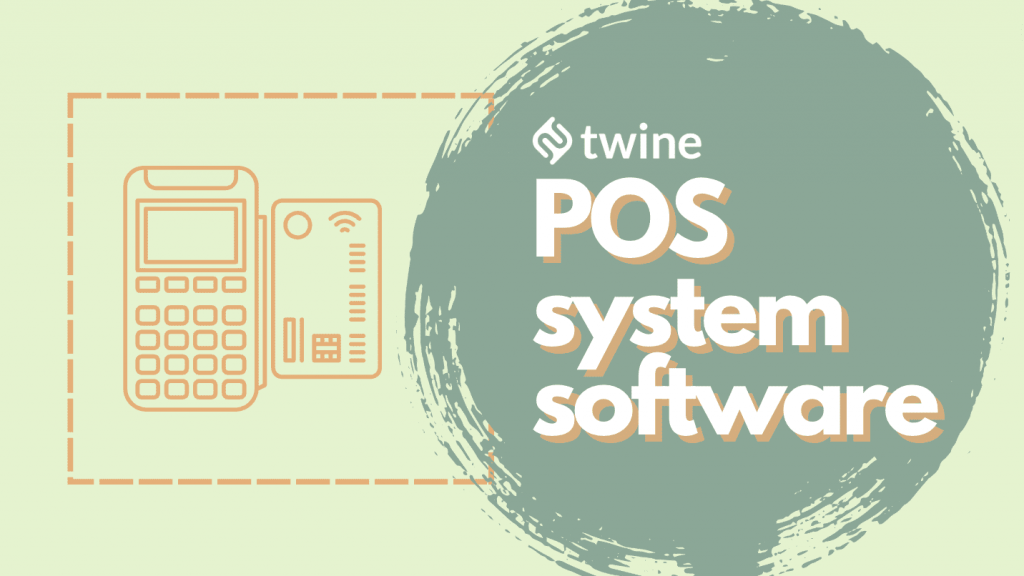
For more Communication Tools, check out the Business Toolkit…
If you are as old as I am, you may remember the click-clack sound of the old cash register, and the little bell ding when the cash drawer opened. My, how times have changed in the last few decades! One area in which technology has really helped us is with Point of Sale – better known as POS system software.
From the manual cash register, we moved to clunky DOS-based software on beige PCs, to faster software on sleeker computers, to nowadays mobile tablet POS, touch screens, and more.
Nowadays, millions of businesses across the globe in dozens of different industries use POS systems to process a multitude of transactions. Trends show we are going cashless, yet with a wider variety of payment types; credit cards, store cards, and even cryptocurrency.
So as a business or a freelancer, how do you find the perfect POS systems software for your needs? In this article, I share what features to look out for, and then list the top 10 POS systems software products of 2022.
Let’s get into it!
What is POS systems software?
Point of Sale aka POS systems software is the software application that runs your POS system. The system may include hardware components, such as a touch screen, handheld scanner, card reader, and more devices. POS systems software is what ties them all together and makes transactions happen.
POS systems software now does far more than just calculate a total. It updates your inventory, keeps track of what sells best on what days and when, and even integrates with other channels you may sell from, such as your website, mobile deliveries, and more.
What features should your chosen POS software have?
Just about every software company will state they have the best product. Of course, they believe that. So how do you dig past all the marketing speak, and determine what works best for you? You can start by ensuring that these features are included in your potential POS systems software.
Here are ten features that may be suitable for your situation:
Great user interface
If the software is clunky and hard to use, then how do you expect your team to be able to process transactions? Make sure that whatever software you choose, you can feel comfortable in teaching someone else how to use it in little time. We shouldn’t need a degree to understand how to use it.
Seamless in-store and online selling
You want multichannel if you are selling in-store (bricks and mortar) and online. Having two systems makes no sense, and will result in issues down the road.
Smart inventory management
We want to ensure we all know what stock is on hand, and what you need to order again. If your POS systems software doesn’t have this, then you are flying in the dark with stock levels.
Customer-facing display
Obviously, this isn’t important if you aren’t selling face to face, however, a customer-facing display makes customers feel much safer and happier.
Easy barcode scanning
When we’re dealing with hundreds if not thousands of products, we need a good barcode scanning facility. The last thing you want is to have to type in lots of codes manually.
Comprehensive customer relationship management (CRM)
If you have regular customers, you want to track them. Having an integrated CRM software as part of your POS systems software just makes good sense.
Multiple payment methods/split payments
I’m fairly sure most of us have been in that situation. You’ve gone to the shops and realized you have to pay partly in cash and partly in card. Any good POS system software now easily allows this to happen.
Advanced reporting and analytics
What’s the point of all this processing power, if you can’t run great reports? Being able to ascertain when you sell the most and least helps with stock levels, staffing and so much more. Advanced reporting should be a given in any POS software that you choose.
Returns, refunds, and store credit features
We all like to think that there will never be returns or refunds, however, that’s very unlikely. We all need a POS systems software tool that can make quick tasks of refunding a customer, or returning something to inventory and issuing a credit.
Bulk product imports
If you have a stack of new products you don’t want to be slowly entering them all one at a time. Most good POS software tools now have a bulk import facility to make fast work of importing dozens of products when needed.
Top 10 POS systems software of 2022
I strongly recommend that you check out all the following options, and compare these to your requirements. Shortlist a handful of the most suitable POS products, and then arrange a free trial or demonstration.
Here are the top 10 POS systems software of 2022, in alphabetical order.
Brightpearl
Brightpearl seems to have gained a good share of the market quickly, thanks to their very impressive features list. They integrate with dozens of products, from email marketing to payment systems, 3PL, and more.
They tout their automation engine as an AI of sorts, saving employees countless hours in preparing future stock purchase orders. Their reporting is advanced as well; you can drill down to user-friendly and customizable reports on best-selling items, profits per sales channel, customer behavior, supplier data, and a stack more.
Erply
Funny name, but from what I understand, a great product. Erply has everything you need in a modern cloud-based POS platform, such as a comprehensive customer loyalty program, stocktaking functions, integration with dozens of other systems, and more.
They even have a self-checkout mode, so you can literally set up a tablet or desktop, and allow customers to do their own transaction – with some staff oversight, of course.
Lightspeed
Lightspeed is a long-lasting, well-known player in the POS systems software space. They have three distinct markets it seems. Retail, hospitality, and golf courses.
Each of these three verticals has its own features that work for them. As an example, golf courses can print game score cards, and restaurants can connect their POS to online delivery platforms such as DoorDash and UberEats.
Odoo POS
How do you pronounce Odoo?
I’m not sure either, however, they have an impressive feature list. They have a great interactive demonstration available, so you don’t have to even provide your name or email address to give their point-of-sale software a spin around the block.
From their integrated email marketing software to their customer loyalty programs with flexible rewards systems, Odoo seems like the perfect POS systems software for retailers who operate in both the in-store and online spaces.
QuickBooks POS
Quickbooks has been a powerhouse of bookkeeping and accounting for seemingly decades, so it comes as no surprise that they offer a strong POS solution.
They don’t just offer the software either, with an impressive hardware suite to help stores get up and running both in physical stores and via e-commerce presence, quickly.
Shopify
I’ve personally used Shopify both in an online-only store, as well as an offline-only situation, and they’ve been great at handling both.
One of their more unique strengths is the fact that whilst they offer their own great-looking POS hardware, you aren’t limited to what they suggest; you can load up their POS systems software on many tablet and mobile devices, too.
Square POS
Square has quickly taken a huge market share, thanks to its competitive payment processing rates and POS and reporting features. I regularly see the Square card readers when I attend markets and outdoor festivals, so I know they have a growing popularity.
Square seems to be one of the easiest to set up, from my understanding, and it certainly deserves a spot in this list of best POS systems software of 2022.
Stok.ly
I love the design of their website, so I would say the Stok.ly team cares just as much about their POS interface. I’m really impressed with their customer insight reporting; you can segment your customers in real-time by behavior and purchase history, to get a full understanding of trends as well as individuals.
They also promote the warehouse management and fulfillment features of their platform, so if you have multiple outlets and a large inventory in warehouses, this may be the perfect POS systems software for your situation.
Toast
Specifically created for restaurants, Toast is a fantastic POS system software for your hospitality venue. Toast integrates with delivery platforms, including integrated automated marketing to help keep your customers returning time and again.
Toast has great value plans too; if you have less than 10 employees, you can be up and running with no money outlaid and no monthly costs, just a percentage of sales.
Vend
Vend makes a huge claim on their homepage, One of the world’s easiest POS software to use. With good reason too; from what I have seen, their slick UI really helps you and your team get up to speed and fast.
Vend states they were the first cloud-based POS software, and they have been around for more than a decade. Their impressive feature list and great reviews from customers mean they should be a serious contender in your shortlist of POS systems software products to trial.
The Bottom Line
As you can see from our list of the best POS systems software of 2022 above, every product has many features to choose from.
These range from touchless payments, to mobile POS, real-time inventory, integrated email marketing, customer loyalty programs, and the like. The trick is to know what features you will actually use, and choose the right software accordingly.
Each of the POS products mentioned above has its pros and cons. No one point of the sale software product will be absolutely perfect for you now and into the future. However, as your business grows, and your requirements change, good software will grow with you. To find the best POS system software for yourself, take advantage of demo videos and free trials, and carefully consider exactly what you need.








